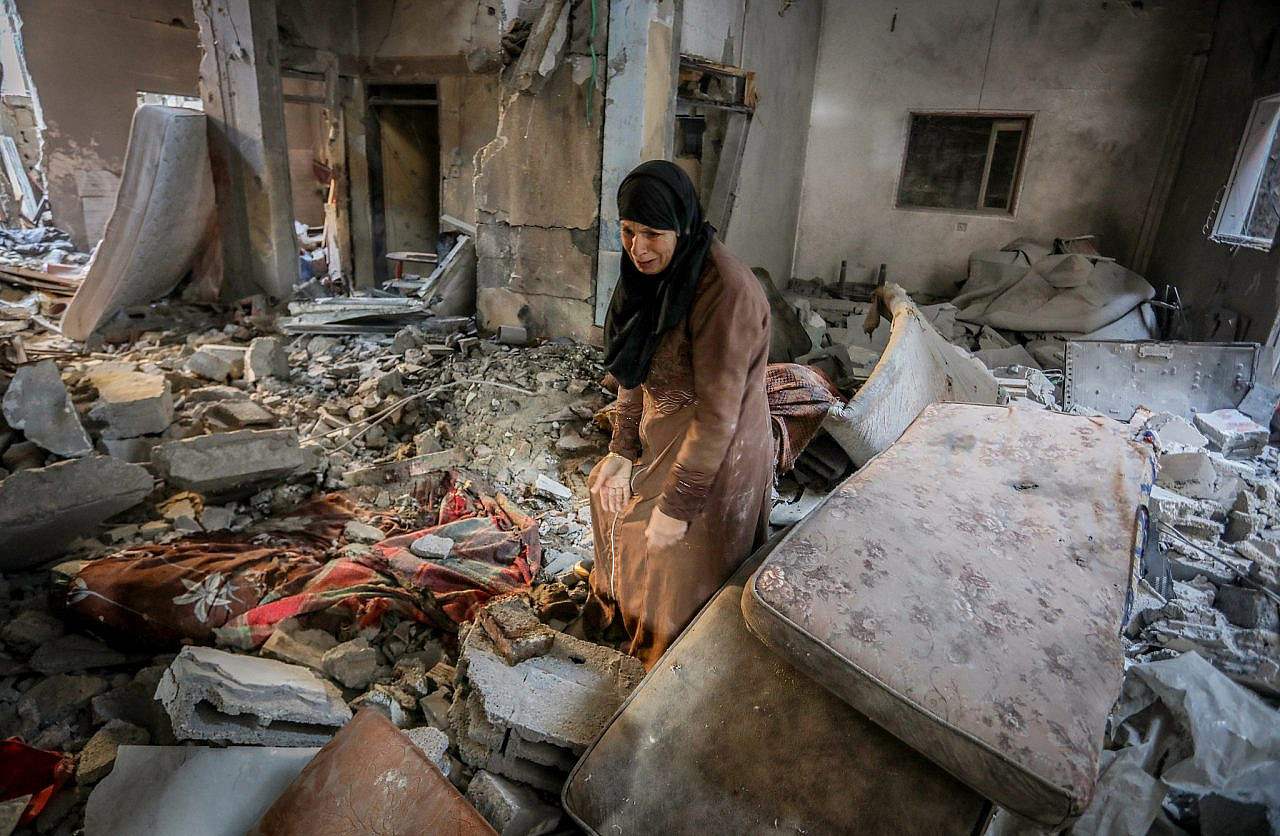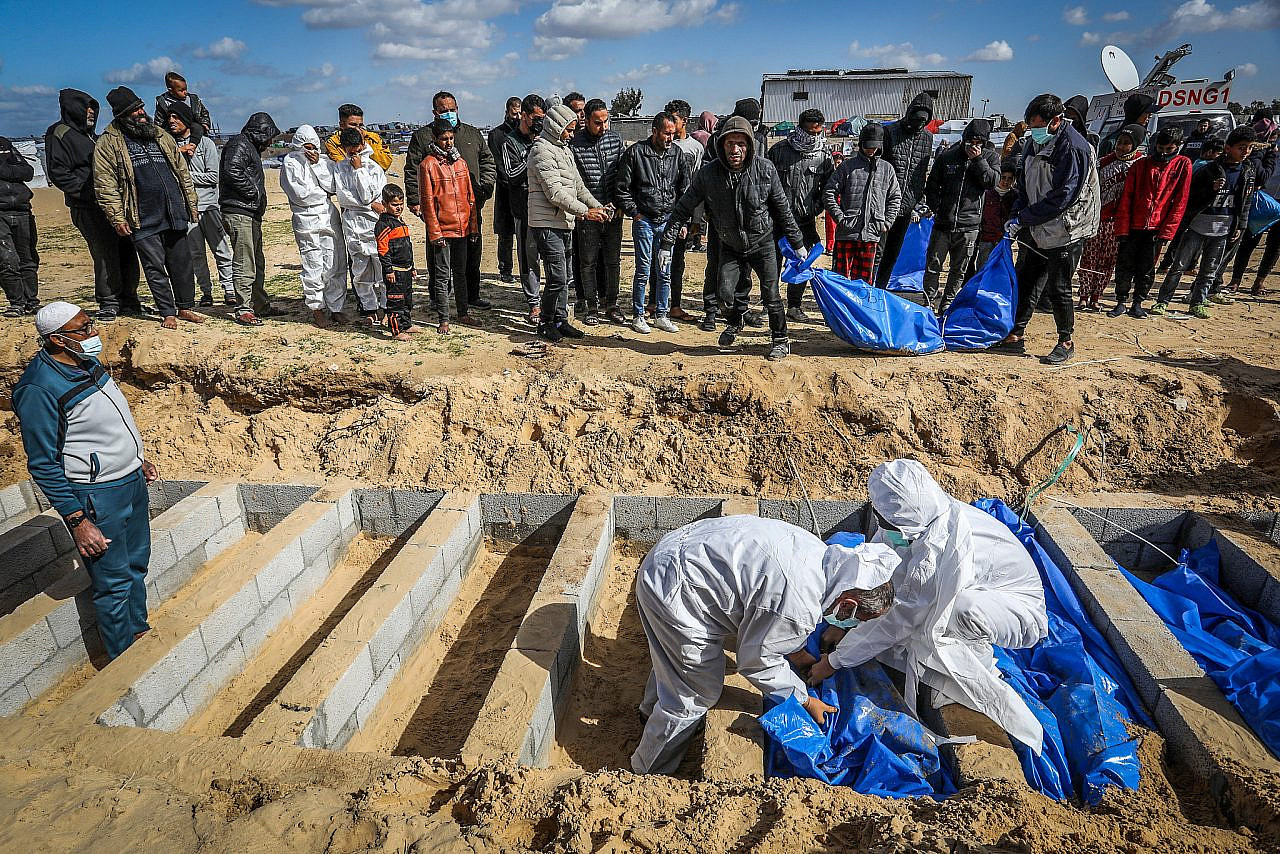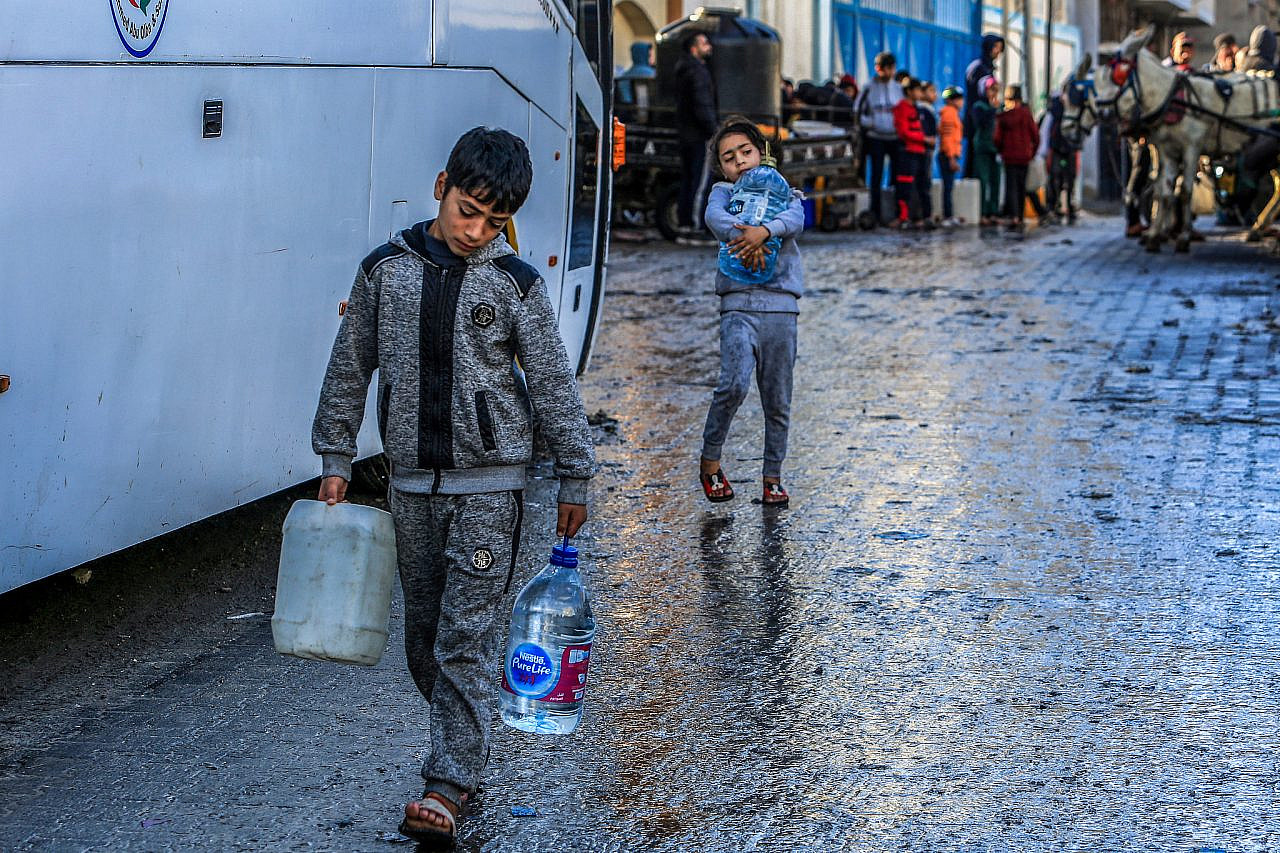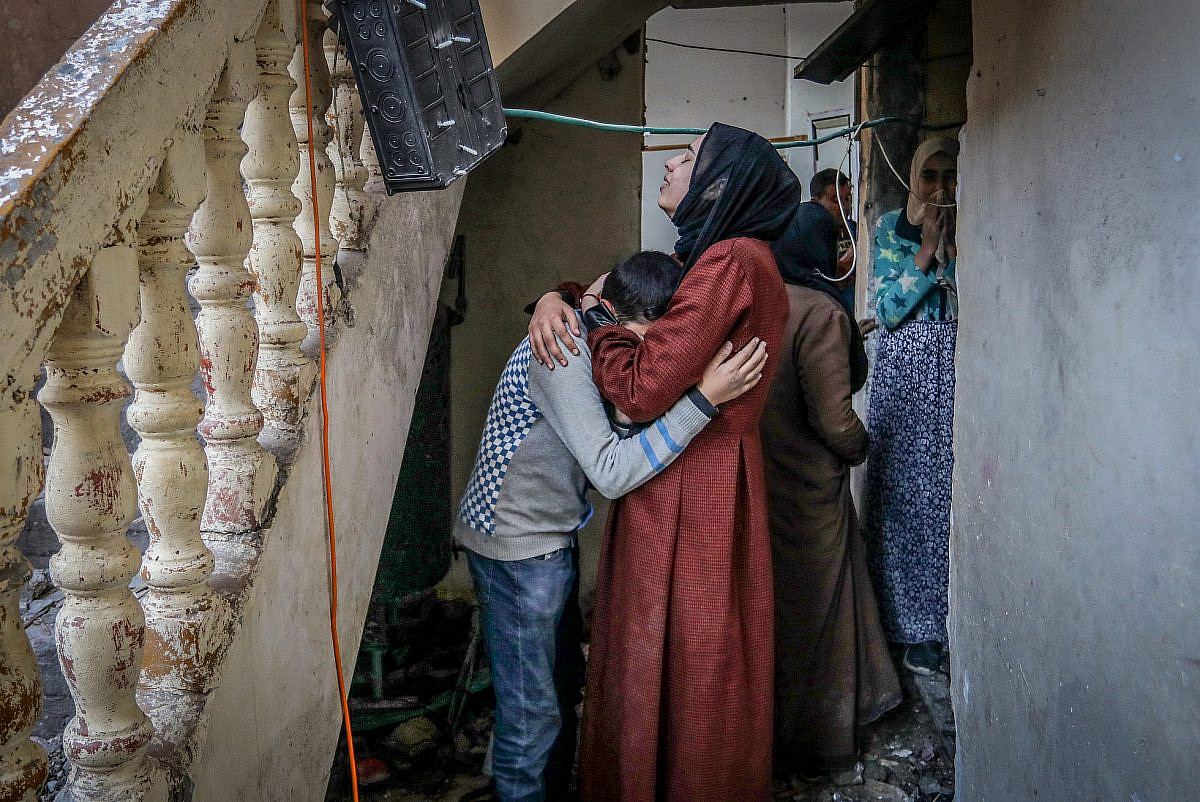On Jan. 26, the International Court of Justice (ICJ) issued a preliminary ruling affirming a “plausible” risk that Israel is committing genocide in the Gaza Strip. While a final ruling on the matter could take years, the Court issued six provisional measures aimed at forcing Israel to scale back its assault. The Court did not, however, opt to call for an immediate ceasefire, as many had hoped it would — not least the 2.3 million Palestinians in Gaza.
Indeed, among residents of the besieged enclave, as among Palestinians and their supporters around the world, reactions to the ruling were mixed. Some saw the Court’s decision to intervene at all as a major step forward in the acknowledgement and protection of Palestinians’ human rights. Yet the decision not to call for a ceasefire — which South Africa, the country petitioning the Court, had urged — struck many in Gaza as a failure to do the bare minimum, enabling Israel to continue ravaging the Strip and its population.
As Palestinians in Gaza continue to ache for an end to the war, desperately awaiting news of a breakthrough in the mediated negotiations between Israel and Hamas, +972 spoke to people in the north and south of the Strip to hear their perspectives on the Court’s decision. The overwhelming sentiment was dismay, which has only deepened in the days following the ruling as Israel appears to have taken no notice whatsoever of the Court’s provisional measures.
‘The world has failed to provide justice for Palestinians since 1948’
Kamal Al-Yazji, 23, was displaced from the neighborhood of Al-Daraj in Gaza City when his home was bombed. He has since been staying at Al-Rimal School in Gaza City, which is run by the UN Relief and Works Agency (UNRWA). Al-Yazji used a famous Arabic proverb to describe the ICJ’s ruling and the international community’s reaction to it: “The hand in water is not like the hand in fire” — in other words, the judges issued their ruling from the safety and comfort of The Hague, and would likely have called for a ceasefire if they were in Gaza themselves.
“Every second in the delay of a ceasefire leads to the killing of a soul, a human being, to the destruction of a house, the destruction of a family,” he said. “It causes unbelievable hardship and sorrow to more children.”

Abu Malik, a 45-year-old lawyer displaced from the Sheikh Radwan neighborhood of Gaza City and now sheltering in Al-Shifa Hospital, agreed: “The world has failed to provide justice for the Palestinians since 1948, and it continues to ignore us in its silence.
“Over 100 days of war have not been enough to make the world recognize our enduring plight,” he continued. “More than 30,000 dead Palestinians [including the several thousand who are missing and presumed dead] and 70,000 more wounded are not enough to convince the world that Israel is committing genocide in Gaza? South Africa’s case against Israel was a reason for hope. That someone is listening to us. But frankly I did not expect a positive ruling from the ICJ, like an immediate ceasefire or ordering humanitarian aid to be permitted to enter the northern parts of the Strip.”
Fahmi Al-Rubai, 32, is from the Shuja’iya neighborhood and has been displaced several times since the war began to different areas of Gaza City. “We were hoping that the Court’s decision would lead to some pressure on Israel to stop the war, but a few days after the preliminary ruling, on Monday [Jan. 29], we awoke to intense gunfire in our area.
“I don’t know who can help us,” he added. “I don’t know who can stop the war. If the ICJ fails, we have no one but God.”
Mustafa Majdi, from Shuja’iya, lost 47 family members in Israeli airstrikes in mid-November. “All of them were civilians,” he told +972. “I was hoping the ICJ would order an immediate ceasefire, so I could bury my relatives who are still under the rubble. What use is this court if it cannot stop the war or force Israel to allow me to bury my family?”

Amein Abedalal, a 45-year-old from Shuja’iya, has been displaced to the nearby neighborhood of Al-Sha’af. He had hoped that the ruling would lead to an increase in humanitarian aid, but this has not transpired. “Israel doesn’t care about law or international pressure,” he lamented. “Our situation did not improve at all after the ruling. I can only hope that more daily aid will come in.”
Abu Ramzi Jendia, a 65-year-old staying in the Palestine Stadium in Gaza City — the national soccer ground that has been converted into a shelter for displaced people — is slightly more optimistic. “There is now hope that the pressure on Israel will lead to a full ceasefire that will persist for the people in Gaza,” he said.
“Although the ICJ did not order a ceasefire, we felt that there is someone who cares about us in this world,” he continued. “At least we felt that the world was beginning to feel our pain.”
‘Stop this war for the sake of our children’
“Since the beginning, we have been waiting for international intervention to stop this hideous war,” said 45-year-old Anwar Awad, who is currently residing in the southern city of Khan Younis. “We cannot sleep day or night. It’s as if we are just waiting for death.
“When South Africa announced that it was filing a complaint with the ICJ, we were happy that there was hope — that there was someone who might force Israel to stop this war and save the civilians and the children of Gaza,” Awad continued. “We waited a long time. And the Court’s decision affirmed that this is a war of genocide against civilians in the Gaza Strip. But we need a clear and frank order for a ceasefire.

“When the judge at the ICJ was talking about what Israel has done to the civilians in Gaza, the displacement and starvation — all this was broadcast all over the world, and we felt that our voice was being heard and that the world would know now what we have been going through,” he went on. “This war is harder than any war that we, our parents, or our grandparents have ever experienced. I hope the world will stand by our side and save us from it.”
Sanaa Barbakh, 37, was displaced with her family from Khan Younis in the days following the Court’s ruling as Israel expanded its ground invasion. “A week ago, I left my home in Khan Younis refugee camp for the Al-Mawasi area in Rafah,” she explained. “I live in a tent now. I am a mother of five children: they crave food and they are all sick, but we have no medicine and I cannot help them.
“We hoped that the Court would directly call for a ceasefire, but that wasn’t the case,” Barbakh continued. “If the decision had been a ceasefire, we would not be living in such terrible conditions now. For us, the civilians, it is not our fault. The war has robbed us of peace and security. We have lost our families, our homes, everything. We need someone to force Israel to end this war.”
Most read on +972
Munir Akar, 50, was also displaced after the Court’s preliminary ruling. “We want a ceasefire, an end to the war,” he said. “We want international delegations to enter the Gaza Strip and see what the war has done to us civilians. I was forced to leave my home in the western part of Khan Younis with 50 members of my extended family. There was no water, no electricity, no food. I could not even provide bread to my family. Will the world accept this?
“The Court hearing was very important, and it drew the world’s attention to the heinous crimes happening in Gaza, but we need to end this war,” Akar continued. “Wars do not benefit anyone, they only increase destruction and violence. We need peace. Peace is the only solution. Stop this war for the sake of our children.”




